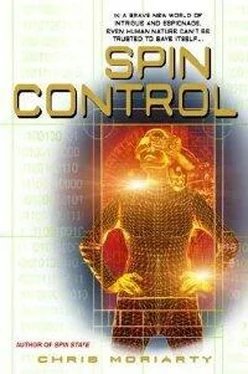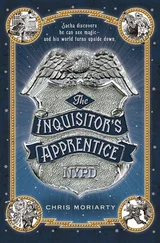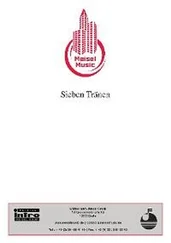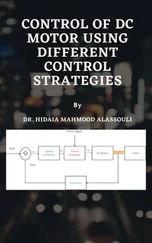The pothole worlds (Gilead had been one when the first generation ship fell into orbit around it) were not terraformed but merely potentially terraformable. Each pothole evolved as its own separate planet, separated from its neighbors by sterile highlands lashed by lethal dust storms and solar radiation. Most of them flared into brief unstable life, then crashed. As Arkady’s first biogeography teacher had pointed out, knowing that isolated population fluctuations took the form of undamped oscillations around a stable equilibrium was small consolation if a downward oscillation dropped the population of a critical organism below zero. But some potholes survived. And a few, a very few of them were still there when the first-generation ships arrived: the scattered seeds of viable planet-spanning biospheres.
All but a handful of human colonies failed anyway, even where they were lucky enough to land on pothole worlds. The number of ways colonists had found to choke, drown, starve, or poison themselves was awe-inspiring. In most cases, however, the ultimate cause of death was startlingly basic: failure to adapt.
Dead colonies—including the genetically nonviable colonies of walking ghosts that the Treaty euphemistically called “bare branches”—died for one of two reasons. Either they refused to retool Earth-born customs and expectations to fit the unforgiving fragility of synthetic biospheres, or they refused to accept the invasive genetic engineering humans needed in order to survive anywhere but on their native planet. Colonies that survived only did so by facing up to the cold equations of life after Earth’s ecological collapse. They gave up the dream of building a second Earth. Or they gave up the dream of staying human. Or they died.
The Syndicates had given up on both those dreams. And in doing so, they had earned the privilege of working miracles. Which meant that the new worlds, the worlds out in the Deep beyond the treaty lines, were theirs for the taking.
Novalis was a typical Syndicate terraforming mission. It unfolded in four phases, only the last of which involved launching a manned driveship toward the target planet. Or rather, the presumed planet. For when the first remote probe launched, its target wasn’t a planet at all but merely a suggestive infrared excess in the spectrometry of a distant star.
The first probe swooped around Novalis on its subluminal flyby and found planets, two of them in orbits that were at least theoretically compatible with the presence of liquid water.
A second probe arrived eight months later, its launch window carefully scheduled to give the RostovSyndicate ecophysicists time to chew on the first round of raw data. In a maneuver that was always touch-and-go in terms of fuel conservation, it fired its onboard thrusters in order to translate into the plane of the most promising satellite: a more or less Earth-sized planet, blessed with a more or less Moon-sized moon that had the geophysicists whispering hopeful little phrases like “satellite stabilization” and “mild Milankovitch cycles.”
Translation was successful. The flyby happened—a spectacular display of interstellar sharpshooting at a mere seventy thousand kilometers above the target planet’s cloud-shrouded surface. The probe dropped seven automated landers before it hooked around Novalis’s yellow sun and shot off on its final voyage into the unsounded Deep.
Four of the landers vanished without transmitting any data at all.
The fifth lander made it most of the way down before succumbing to a damaged heat shield segment, and it sent back infrared and microwave soundings of an ocean (an ocean!), whose scatterometry produced a marine wind field map that Banerjee’s chief oceanographer pronounced promisingly reminiscent of Earth’s southern oscillation.
The sixth lander reached the surface and sent back a wealth of intriguing and frustratingly inconclusive readings before it drove over a cliff, to the spluttering humiliation of its design team, and shattered its solar collector.
The seventh lander caught an ant.
An ant whose DNA, when crushed and sequenced and crosschecked and cataloged, proved her to be the many thousandth great-granddaughter of a cloned ponerine queen boosted into space in 2031 on one of the European Space Authority’s venerable Ariane rockets and still covered by a perpetual, though obviously unenforceable, patent originally held by a Delaware corporation with the unlikely name of Monsanto.
With the discovery of one humble ant, all hell broke loose in the skies over Gilead. Scientific teams zipped back and forth from Syndicate to Syndicate. Aziz and Banerjee planners hammered out launch windows and crew and cargo manifests. The infamous “annoyance questionnaires” began to circulate among potential payload and mission specialists, a sure sign that not only was a long-range mission being planned, but that it would be a sprint mission: a desperate direct throw of the bare minimum of personnel and equipment needed to stake a claim to the target planet. Good luck, happy sailing…and we’ll deliver logistical support if you survive long enough to need it.
A third unmanned probe was dispatched, this one sleek, heavy, expensive, and freighted with a weight of scientific equipment worth the gross annual product of some of the smaller Syndicates. Two years behind the third probe—these things take time, after all—RostovSyndicate launched the ship whose arboretum they had just flown through at a speed that precisely measured the technical advances in interstellar propulsion made in the six years that separated the two ships’ launch dates.
And now, in a matter of days, the survey team would swing into orbit around Novalis…and begin the real work for which each of them had been training ever since they’d opted for the sciences track at sixteen and tested into geophysics, genetics, engineering, astrophysics, oceanography, zoology, genetics, molecular biology complex systems study, chaotic systems control, and all the other manifold specializations that the science-cum-art of terraforming demanded.
Arkady was at once awed and inspired by the sheer weight of history that lay behind each step of a preterraforming survey. Every reading, every sounding, every measurement they would use to establish the baseline condition of Novalis’s biosphere represented the life’s work of generations of engineers and scientists before them. Even so simple a task as taking the temperature of the ocean’s surface from orbit embodied a trajectory of technological evolution that began with the first primitive infrared sounding devices NASA engineers invented back in the twentieth century to explain the subtle color shifts that entranced the first astronauts to see Earth’s oceans from space.
Each member of the survey team—Arkady with his ants, Aurelia with her exacting measurements of the planet’s geophysical processes, Arkasha with his DNA samples—was part of an endless cycle of trial and error and recalibration that spanned two sentient species, several dozen planets, and a millennium of scientific investigation. And at the end of all their work lay the same thing their forebears had faced, a term coined by the first geophysicists on Earth but still a fertile part of the terraformer’s working vocabulary all these centuries later:
Ground truth.
Ground truth was the final judge from whose verdict there was no appeal. Ground truth was what you found when you finished your measurements and plans and preparations and took your heart in your hands and landed on your target planet. Ground truth was what you found when you sampled the soil, when you physically dropped a sounder into the ocean, when you walked through the forest or grassland or tundra you had surveyed from orbit and dissected and sequenced the specimens you collected there.
Читать дальше












